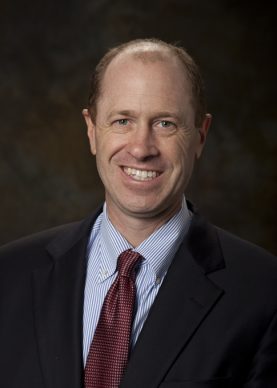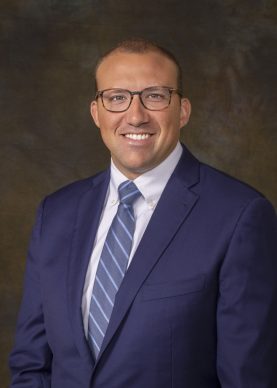Diagnosis and Treatment of Lumbar Spinal Stenosis in Wake County

What is Lumbar Spinal Stenosis?
Lumbar spinal stenosis is a narrowing of the spinal canal in the lumbar region, or the lower part of your back. This condition can make walking difficult since it puts pressure on your spinal cord, causing pain and numbness in the lower back and legs. In severe cases, lumbar spinal stenosis can lead to incontinence.

What Causes Lumbar Spinal Stenosis?
Osteoarthritis is the most common cause of lumbar spinal stenosis. Arthritis from wear and tear begins to change most people’s spines by age 50, which is why most patients with lumbar spinal stenosis are 50 or older. Women have a higher rate of lumbar spinal stenosis than men.
Lumbar Spinal Stenosis Risk Factors
Other than osteoarthritis and age, risk factors for lumbar spinal stenosis include having a narrow spinal canal, spinal injury, past spinal surgery, rheumatoid arthritis, certain bone diseases, and spinal tumors. One or more of these risk factors can create a painful narrowing of the spinal canal.
Symptoms of Lumbar Spinal Stenosis
Early cases of lumbar spinal stenosis may not have any symptoms. In most patients, symptoms of lumbar spinal stenosis develop and worsen over time. Symptoms can include:
- Pain in the lower back
- Burning pain stretching down the legs
- Numbness, weakness, or tingling in the legs
- Loss of feeling in the feet
- Foot weakness when walking
How is Lumbar Spinal Stenosis Diagnosed?
Your physician will ask you questions and perform a physical examination if you have any of the symptoms listed above. Diagnostic tests for lumbar spinal stenosis include spinal X-rays, a CT scan or MRI, and possibly a bone scan, EMG, or myelogram. If lumbar spinal stenosis is determined to be the cause of your symptoms, your orthopedic specialist at Raleigh Orthopaedic will walk you through your treatment options.

Treatment for Lumbar Spinal Stenosis in Wake County
Though painful, lumbar spinal stenosis can be treated effectively through care from specialists, including surgeons, orthopedists, and physical and occupational therapists. Usually, non-surgical treatments are attempted first. Non-surgical treatments for lumbar spinal stenosis include physical therapy exercises to support strength and flexibility, massage, anti-inflammatory medications to relieve pain and swelling, and steroid injections to reduce inflammation.
Most lumbar spinal stenosis patients find relief from their symptoms through non-surgical care. However, patients who do not get relief from these care options may turn to surgery for their lumbar spinal stenosis. Surgical procedures to treat lumbar spinal stenosis include removing bone spurs and widening the spinal canal. In addition, surgically fusing some of the vertebrae can add stability to the lower back.
Laminectomy surgery involves removing the back of the affected vertebrae to ease pressure on nerves and give the spinal cord more space. Laminotomy surgery only removes part of the back (or lamina) of the affected vertebrae. Surgery can reduce symptoms of lumbar spinal stenosis, but not all patients see improvements after surgery. Surgical risks of lumbar spinal stenosis treatment, such as infection, blood clots, and tears in the membrane covering the spinal cord, should be considered.

Lumbar Spinal Stenosis Recovery Time
Non-surgical treatment of lumbar spinal stenosis often provides relief from symptoms within days. However, patients who undergo surgical lumbar spinal stenosis treatment will need to rest for several weeks and take pain medication. Surgical patients may need to avoid driving and activities involving bending or lifting for some time after surgery. A minor laminectomy might require a few weeks of recovery. Spinal fusion usually calls for two to four months of recovery.
How Can I Prevent Lumbar Spinal Stenosis?
Almost everyone has some level of osteoarthritis in their spine by age 50, so it is difficult to prevent lumbar spinal stenosis. You can lower your risk by living an active lifestyle that includes aerobic exercise, practicing good posture, and maintaining a healthy weight. Be sure to sleep on a firm mattress and sit in chairs that support your back.

Expert Neck and Back Care at Raleigh Orthopaedic
Come visit the orthopedic experts at Raleigh Orthopaedic if you are experiencing the symptoms of lumbar spinal stenosis or other neck and back conditions. Our back care specialists will provide compassionate and effective care to help you return to an active lifestyle. Contact Raleigh Orthopaedic or book an appointment online at one of our convenient office locations in Wake County, NC today.

